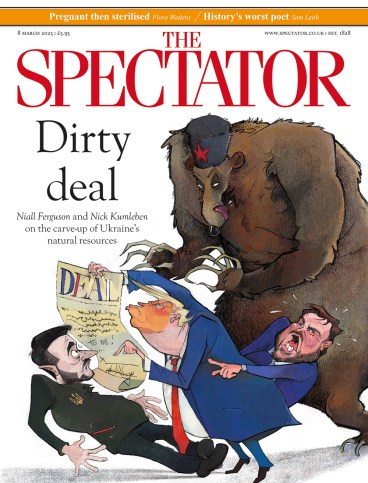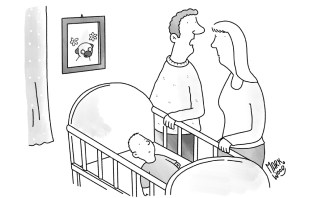
For many Spectator readers, their only exposure to the workings of the Whips’ Office will be through the machinations of Francis Urquhart, Michael Dobbs’s fictional chief whip made famous in House of Cards. In the first diaries published by a former chief whip, Simon Hart aims to shine a light on the vital and often unrecognised role that the Whips’ Office plays in the functioning of parliament and government.
Having been overlooked by David Cameron and Theresa May, Hart arrives at the top table under Boris Johnson in 2019, nine years after his entry to parliament. He serves as secretary of state for Wales until he joinsa slew of others in resigning from the government – the prelude to Johnson’s resignation as prime minister. When Rishi Sunak is resurrected after the Liz Truss debacle, Hart is appointed chief whip. Our diarist thus takes on the challenge of a lifetime, trying to piece back together an ‘ungovernable’ party.
Somewhat surprisingly, given the book’s title, the first half of these diaries covers Hart’s tenure as secretary of state for Wales. He tries his best to illuminate the job, and the entries are filled with extensive notes about Covid meetings and engagement with Mark Drakeford’s administration on the pandemic response, which will no doubt be interesting to students of the devolution settlement. Hart is clearly – and rightly – sceptical of the Welsh government’s approach in a range of areas, and often hints at his frustration at the powerlessness of his position to influence events.
The most interesting and entertaining passages are found in the second half, covering Hart’s time as chief whip. There’s an eye-opening anecdote about being woken by a call in the night from an unnamed Tory MP who’s stuck in a brothel being blackmailed for cash. Hart’s heroic special adviser is dispatched to resolve the issue, and does so elegantly. There is an intimate sense of Hart grappling with the myriad personal rivalries and petty jealousies that have accumulated among his colleagues during 14 years in power. You can sense his frustration as they present themselves at his office, one after another, to lobby for a knighthood or a peerage – so much so that he jokes he might have called the book ‘About my knighthood…’ – the line that opens so many of these conversations.
There’s a call in the night from an unnamed Tory MP who’s stuck in a brothel being blackmailed for cash
The diaries are the first attempt at setting out a recognisably Sunakite version of the Tories’ recent history. In essence the argument goes that there was nothing that could have rescued the party’s fortunes after Truss resigned. The damage was done, and it was irrecoverable. ‘We started 20 points behind when Rishi took over, and it looks horribly like that is where we will end up,’ Hart writes on the eve of the election in which he would come third in his own seat.
For Hart, Sunak can seemingly do no wrong. Sunak’s 2023 party conference speech – in which he rounded on ‘30 years of vested interests standing in the way of change’ – was then followed by the appointment of David Cameron as foreign secretary. Hart regards both as triumphs, and doesn’t see a hint of the dissonance between the two. After one meeting with Sunak, Hart laments that ‘if only others could see him like this’ the party’s fortunes might turn. It is admirably loyal, but readers may recall aides once saying similar things of Gordon Brown.

The sacking of Suella Braverman, the resignation of Robert Jenrick and the de-whipping of Lee Anderson were all key moments in the Sunak administration, and Hart does not appear to understand the significance of any of them. All could have been avoided. Indeed, the series of decisions required to escape these outcomes would almost certainly have left the Tories with a stronger immigration policy and therefore less exposed to the threat from Reform. A hint at Hart’s personal politics is given when, after coffee with Rory Stewart, he gushes that ‘we agree on almost everything’.
Hart is a cheerful, likeable man of the field, and throughout these pages he is variously off on shooting weekends when he isn’t swilling gin in Westminster or enjoying its many eateries. As a gastronomic guide to SW1, Ungovernable will leave you wanting to plan your next visit to Sheekey’s, Gordon’s or the Cinnamon Club.
The prospect of the first published diaries of a chief whip will ensure this book piques interest. Hart is certainly at the centre of events, but at times he seems like a passenger rather than a protagonist in what is unfolding in front of him. For colour and intrigue, this is an enjoyable race through a chaotic time in Westminster. But as a study of the profound political failure which confronts Hart in Llanelli Leisure Centre at 4 a.m. on 5 July last year, it will leave readers with more questions than answers.







Comments